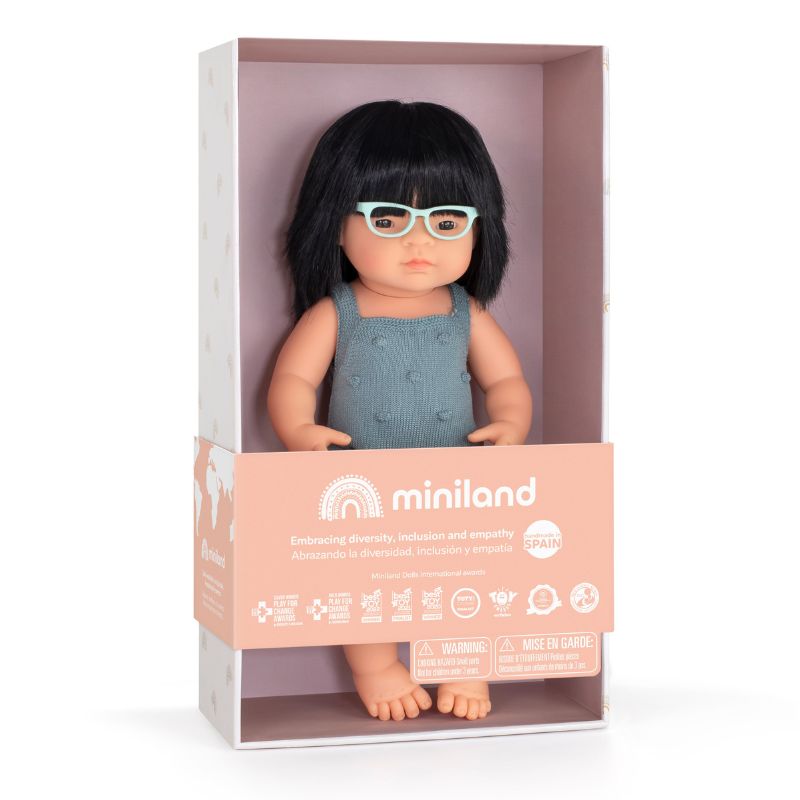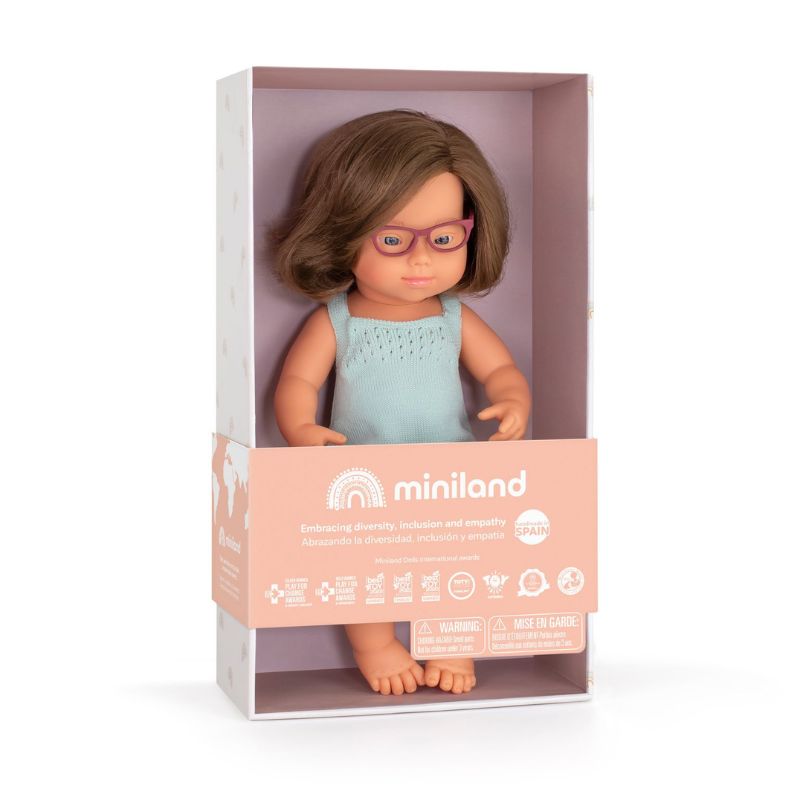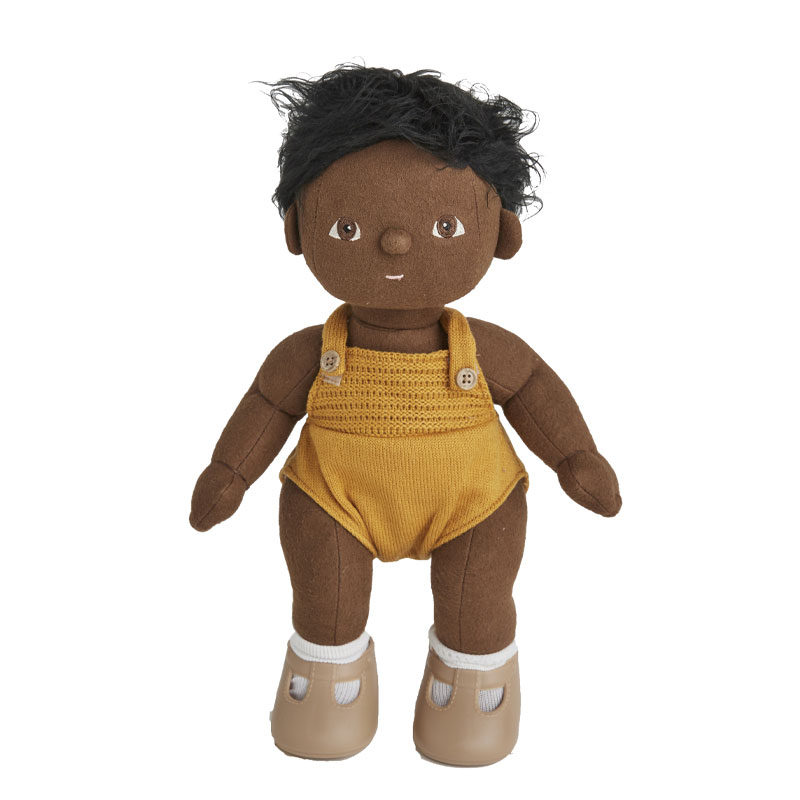The importance of playing with diverse and inclusive children’s toys
With Christmas just around the corner, the stark reality of the lack of children’s toy representation becomes clearer. TV and online adverts showcase the usual dolls and teddies, but what is there to see for parents furiously searching for “toys that look like me”¹ on Google?
On average, the search term “diversity dolls” receives 260 Google searches every month², highlighting the demand for inclusive toys from families. Following this, we’ve delved into why it’s important that children play with representative toys.
Why inclusive toys for kids matter
We spoke with general clinical practitioner, Dr. Hana Patel, on why it’s crucial children play with toys that reflect the world around them: “Toys are essential for many reasons, not just for the pleasure of playing. We introduce babies to lights, sounds and toys from when they’re born to help them develop skills to move their fingers and toes, and as they get older, toys help with their fine and gross motor skills.
“With a sibling or friends, we use toys to teach children social constructs such as sharing, taking turns, and different toys can spark children's creativity and imagination, encouraging them to read and learn about the world around them - this is really important so that children begin to get an understanding about different ethnicities, disabilities, genders, and cultures.”
Our experts at The Kid Collective share that not only will playing with inclusive toys help children gain a better understanding of the world around them, but it will also help them identify with themselves.
Encouraging inclusive play
For parents looking for more diverse and inclusive toys, introducing dolls that showcase conditions like down syndrome or promote race equality is instrumental for children to learn about empathy, tolerance, and acceptance. Children who wear glasses or hearing implants would benefit greatly from playing with dolls which showcase these aids. For example, Olive, our Miniland baby doll who wears a hearing implant, is the perfect toy for SEL (Social Emotional Learning) to enhance social abilities and creativity by free playing in the classroom or at home.
Mattel has only recently launched the first Barbie doll with hearing aids, which suggests there’s still a long way to go in brands offering a broad range of inclusive toys.
Children are internalising the world's diversity by playing with inclusive toys like this. Some children may not have friends or know people from diverse backgrounds, and playing with our inclusive and diverse toys will help bridge this gap by providing parents with a tool to talk about diversity positively. Playing with toys that encourage open-ended play is also a great way to encourage imagination and creativity while building on social awareness.
Dr. Hana adds: “For parents to provide cultural and social context when introducing inclusive toys to their child toy collection, a good idea would be to incorporate the toys into a social setting where children may see this particular example of diversity or ethnicity. For example, using dress-up or introducing the context using books, stories, TV, or film would help children understand what it means by representation and also how they themselves fit into the world around them.
“I think parents and those in educational settings should introduce toys like this right from the start; it shouldn't be something that parents actively think about. There should be inclusive toys in nurseries, stay and play settings, and it should be part of the range of toys in any toy shop.”
If inclusive toys, such as our skin tone pencils, were previously accessible to children, this could have made a real difference to a whole generation of children, their view of the world and themselves. Unfortunately, children that are now adults missed out on having access to toys like this, which is why we’re passionate about ensuring this generation of children and those that follow are exposed to a diverse range of play options.
The positive impact of growing up with representative toys
We spoke to Emma Carney based in London. In 1982, Emma’s mum and dad bought her and her sister a black baby doll called Sarah, and Emma shares how she believes having access to an inclusive toy like this had a positive impact on her attitudes towards others: “Both me and my sister had her (Sarah) as our doll growing up and we never once really thought about it to be honest. What I did notice was how both I and my sister always had a very wide and diverse group of friends. I found it very normal as a 5, 6, 7 year old to go up to groups of non-white children and just be best friends -like instantly grab their hands and say, “we’re best friend now!”. I've since read articles saying introducing diverse toys as a child helps a child Identify with people who are different to them, and I am inclined to agree.”
Toys for all of our children
It’s really disheartening that at one point, inclusive and diverse toys couldn’t be found on toy store shelves, and that children had to make do with toys that they couldn't identify with. I can’t imagine the impact this will have had on their confidence, mental health, and ultimately, their view on what people thought of them.
In today’s society, it’s great to see more toy brands manufacturing toys with visible differences, and we’re so proud to stock such a wide range of inclusive toys; from dolls that wear hearing aids and glasses, to crayons that allow children to draw representative pictures of themselves and their family.
However, the regular searches for “toys that look like me” just proves that many children’s toy brands are falling down in offering this as an option, and with the festive season just around the corner, I’m hoping we see brands combating this by launching more inclusive toys with their ranges. We’re always looking for diverse toys to add to our product selection, and we’re passionate about ensuring our toys represent every child, their ethnicity, disability, gender, and culture.
To view more of our inclusive, educational children's toys, please visit: https://www.thekidcollective.co.uk/dolls-accessories.html
Sources
- Average search volume of 20 for search term “toys like me” correct as of September 2022
- Average search volume of 260 for search term “diversity dolls” correct as of September 2022
.png)



















.jpg)
.jpg)
.jpg)
.jpg)
.jpg)
.jpg)
.jpg)
.jpg)
.jpg)
.jpg)